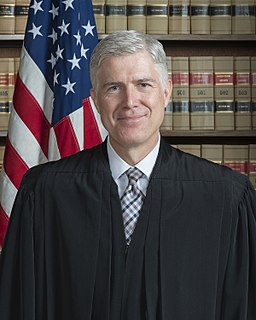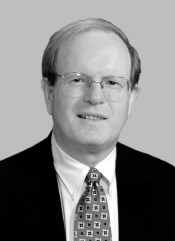A Quote by Marcia Clark
Now I am practicing as well as a criminal defense lawyer in handling appeals. The court of appeals appointed me to handle cases and although that's not trial work and I don't have to go to court, it kind of satisfies the need I have to practice still and I have transitioned into readiness not to be in trial anymore. It took a little while for me to get used to not doing it and I did miss it for a few years, but eventually I transferred into another life.
Related Quotes
Most lawyers aren't trial lawyers. Most lawyers, even trial lawyers, don't get their problems solved in a courtroom. We like to go to court. It seems heroic to go to court. We think we're the new, great advocates, better than anything we've seen on TV, and we come home exhilarated by having gone to court.
People whose terms go for five years or longer, like FCC commissioners. That's a higher standard. Then district judges, who are appointed for a lifetime but can be overruled. Then Court of Appeals judges. They're not the highest level, but they're almost the final word. And then, of course, the Supreme Court.
For a lawyer to do less than his utmost is, I strongly feel, a betrayal of his client. Though in criminal trials one tends to focus on the defense attorney and his client the accused, the prosecutor is also a lawyer, and he too has a client: the People. And the People are equally entitled to their day in court, to a fair and impartial trial, and to justice.
I loved the work. I missed it for years after I was arrested. I couldn't drive past 100 Centre New York City Criminal Court, that whole area, without crying, seeing people going to court and knowing I couldn't do that anymore. I still do miss it. I don't think I could ever go back. Maybe I could consider second-seating my son or someone else whose work I respect. But I could not take on any responsibility. I'm out of step; I haven't kept up.
Over the past few years, the Supreme Court was six times more likely to accept cases from an elite group of 66 lawyers than it was from more than 99 percent of those who petitioned the court. That's the finding of a recent Reuters special report called "The Echo Chamber." It illustrates how almost half the appeals accepted by the court over a nine-year period came from this cadre of elite lawyers--many of whom have personal connections to the nine justices.
This is your court and you possess the force to celebrate the trial and convict me on the basis of your lists of accusations, the public one and the secret one, and you can dictate a sentence prepared by the political and security apparatuses that are behind this trial. But I too possess a will obtained from the justice of our cause and the determination of our people to reject any decision from this 'kangaroo court'.
The reality is that most celebrity defendants are extremely unknowledgeable, naive and vulnerable, and if they get into trouble they usually call their lawyer friends who handle criminal cases. And if they do not know any, they call their business lawyers, who then refer them to lawyer friends of theirs who handle criminal cases. It's very incestuous.



































